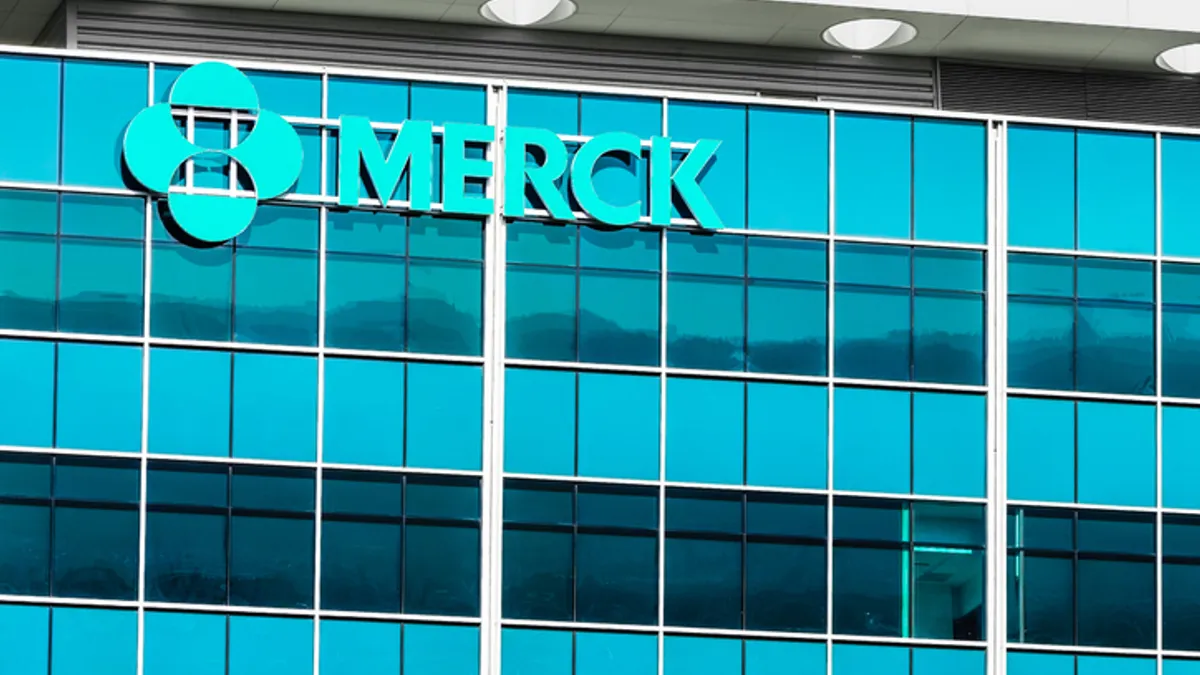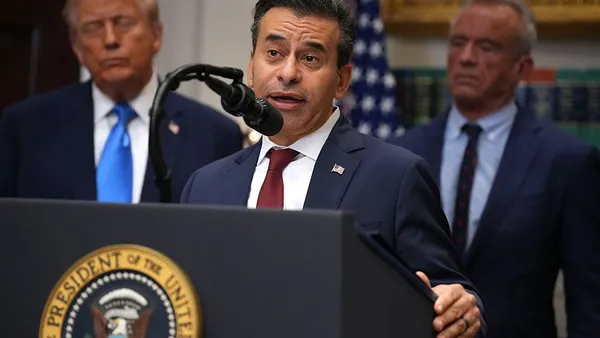Investments in U.S. drug manufacturing are skyrocketing.
Pharma giants everywhere have announced massive, multi-year deals to build and expand facilities across the country as several market factors make the U.S. a favorable destination for producing branded drugs.
The looming threat of U.S. tariffs remains a motivator for companies from around the globe. Earlier this month, President Donald Trump said tariffs as high as 200% on pharma products would be introduced “very soon.”
Other industry shifts, including the growing GLP-1 market and the demand for skilled workers in pharma’s tech-heavy manufacturing environment, are also tipping the scales toward the U.S.
Amid the investment boom, tens of billions of dollars are pouring into manufacturing hubs like Raleigh, North Carolina, and generating thousands of job openings for engineers, R&D personnel, operations professionals and more.
Here’s a look at the latest companies to hop on the U.S. manufacturing bandwagon.
AstraZeneca makes its largest-ever single facility investment
AstraZeneca joined the $50 billion club this month when it announced a sprawling manufacturing and R&D investment in the U.S. The size of the investment matches the other leading pledges from pharma companies this year — including Roche, Johnson & Johnson and Eli Lilly — to each pump $50 billion or more into U.S. facilities.
CEO Pascal Soroit acknowledged that tariffs played a part in the U.K.-based company’s decision to pump up its U.S. operations in a recent interview with Fortune, but also noted that Europe is “losing ground” as a drug production destination by focusing on “social benefits and managing costs.”
AstraZeneca’s plan includes $4 billion for a drug substance facility in Virginia — its largest single-facility manufacturing investment in the world. But the $50 billion in funds will stretch across the country and include an R&D expansion in Maryland, a continuous manufacturing expansion in Indiana, a next-generation cell therapy facility in Texas, a “state of the art” R&D center in Massachusetts’ biotech hub at Kendall Square and more.
The American market for drugs also plays a starring role in the company’s broader ambitions. All told, AstraZeneca aims to boost its total revenue from the $54 billion-mark it hit in 2024 to over $80 billion by 2030 — half of which it expects to be generated in the U.S., the company said.
Biogen pours more into North Carolina
Biogen is broadening its manufacturing footprint in North Carolina. The company said it will invest $2 billion into two campuses in the state’s Research Triangle Park, Biogen’s current hub for manufacturing.
The fresh funds will expand Biogen’s capacity for multiple modalities, including antisense oligonucleotides, while modernizing its operations with automation and AI.
Biogen is still working to move past its Aduhelm debacle. The Eisai-partnered Alzheimer’s drug notched a historic approval in 2021 but was later pulled from the market amid cost and efficacy controversies.
Its other Alzheimer’s treatment Leqembi has had a stronger showing on the market and has steadily risen in sales since last year. But Biogen has also been in cost-cutting mode since 2023 and expects revenue to decline this year.
Going forward, the company is leaning on its pipeline, including treatments for Dravet syndrome, a rare form of epilepsy, to set the stage for future growth.
Its latest manufacturing investment adds to the $10 billion it has funneled into North Carolina since setting up shop at Research Triangle Park in 1995.
Thermo Fisher snags Sanofi facility to boost fill-finish chops
Thermo Fisher Scientific is expanding its production prowess with the help of a growing Sanofi partnership.
The companies said this month that Thermo Fisher is snapping up a sterile, fill-finish manufacturing site from the French pharma for an undisclosed sum. The move comes amid higher-than-expected profit last quarter for Thermo Fisher, one of the pharma industry’s key suppliers of clinical research services and equipment.
The new digs will help Thermo Fisher “strengthen” its U.S. manufacturing capabilities for the broader pharma industry, the company stated.
The latest move is also a part of the four-year, $2 billion commitment to U.S. manufacturing Thermo Fisher announced in April.











